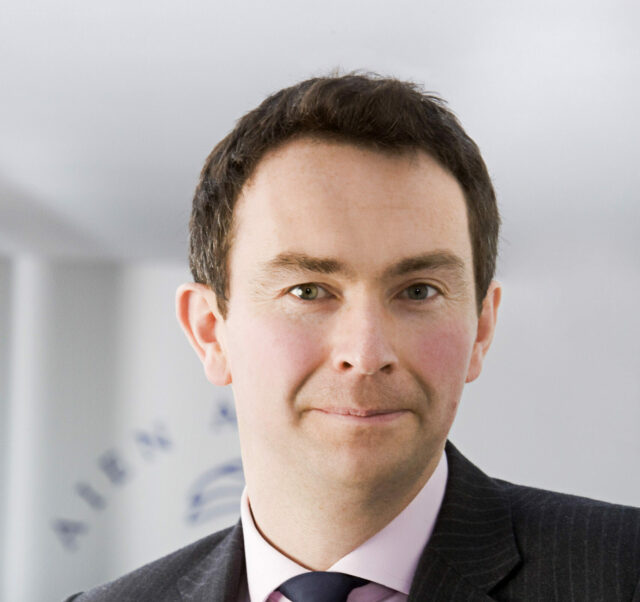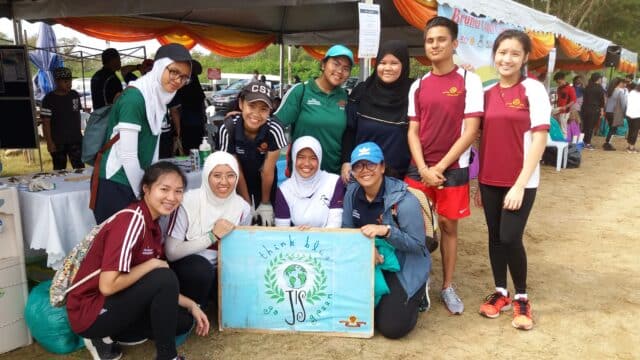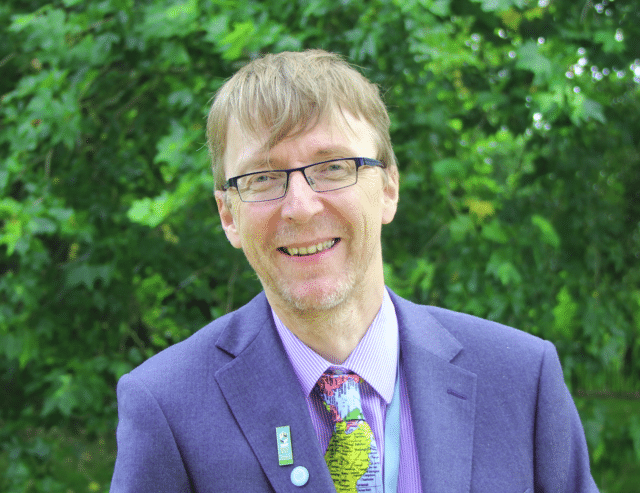Blog
The Graduate, Plastics, and Sustainability Goals
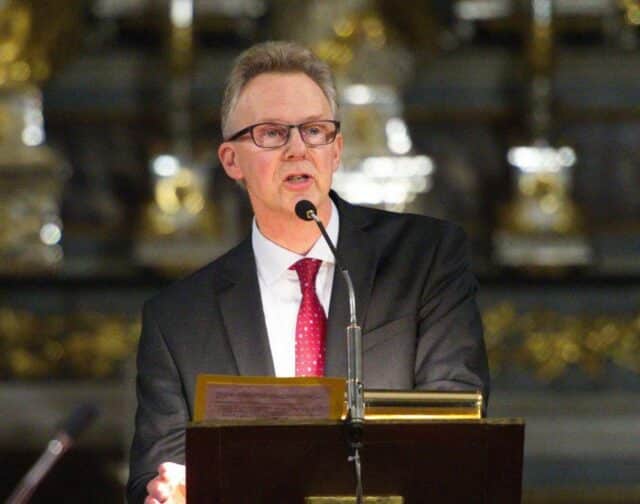
Chris Greenhalgh
Principal & CEO, The British School of Milan – Sir James Henderson
Read the blog
If you’ve seen Mike Nichols’s film, The Graduate– over 50 years old now – then you might remember an early scene in which the main character Benjamin, played by Dustin Hofmann, is taken aside at his graduation party by a family friend and advised in confidential tones, with a wise arm on the shoulder: ‘I just want to say one word to you…Just one word.’ The man leans closer, and whispers into Benjamin’s ear. ‘Plastics,’ he says. ‘Plastics. There’s a great future in plastics.’
That line is more deeply ironic now that it was then. Plastic may well end up being the defining layer in the rock strata that represents our human habitation on the earth in the Anthropocene era.
With differing levels of commitment and earnestness, the environmental movement has seen a quantum leap in recent years. The series of UN Climate Change Conferences – the latest being COP 27 – have sounded increasingly severe warnings about the future of human life on the planet.
Our students are particularly active and vocal on the matter, though rather than being ideologically zealous they are refreshingly and matter-of-factly practical about the issue.
We see our responsibility as a school to support our students’ ideals and on their behalf promote the environmental agenda. One of the criteria for our Catering Company, when they were appointed recently – apart from increased choice of food and better portions – was the requirement to use no plastic.
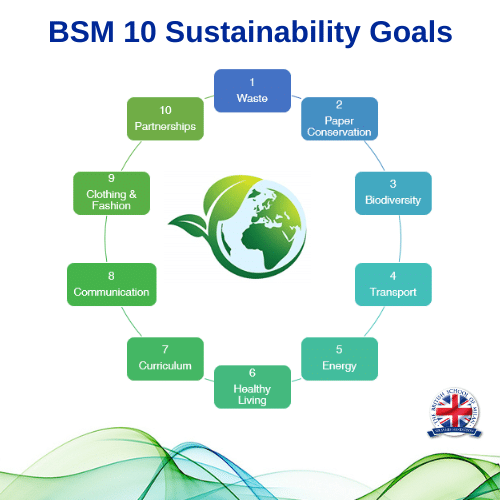
A Primary School student came into a recent Board meeting to check we were not using plastic water bottles. Happily we were not. But it is right that our students hold us to account in this regard, giving us a constant and healthful nudge.
I know that students are very proud to have helped create our school garden, and through the efforts of the Eco-Group, pupils have managed to make a saving of 8K cubic metres of gas on previous years.
Two years ago, we launched our BSM Sustainability Goals. Covid intervened, but they remain ambitious, smart and, we hope, manageable targets, and while each one will not on its own save the planet, cumulatively we hope they point us in the right direction.
We identified 10 goals in all, relating to waste (for example a rainwater collection system is used for watering outdoor plants); paper conservation (involving the rationalisation of copiers and printers, elimination of paper cups); biodiversity (we now have an aquarium and bird boxes).
In addition, we have nudges on transport (car-pooling initiatives and more bike racks provided) and energy (switching off lights, projectors); the canteen is promoting more vegetarian and dairy-free options; the topic is covered in the curriculum, and the theme routinely pursued in school communications, promoted in clothing and fashion, and through external partnerships with the school.
Recent fundraising has led to the purchase of a greenhouse on the school grounds. This allows students to grow their own fruit and vegetables, and see for themselves what ‘green’ looks like.
 As a school we have just observed a minute’s silence to commemorate the moment when the guns in the First World War grew silent: the eleventh hour of the eleventh day of the eleventh month.
As a school we have just observed a minute’s silence to commemorate the moment when the guns in the First World War grew silent: the eleventh hour of the eleventh day of the eleventh month.
The Cop 27 Conference will repeat the message that the climate emergency threatens human flourishing on the planet. It seems we have arrived at five to midnight. If we don’t act now, it will be too late. This is a war we are all engaged in. At stake is the health of our current students, and the ability of their children to inherit a liveable earth.
Related articles
-
Blogs
Taking Eco Action -
Case Studies
UCS Green Impact Society Leading The Way -
Case Studies
Sustainability at St Helen’s -
Case Studies
Protest has turned to action at Putney High School -
Case Studies
Changing the environment - A school in transition
